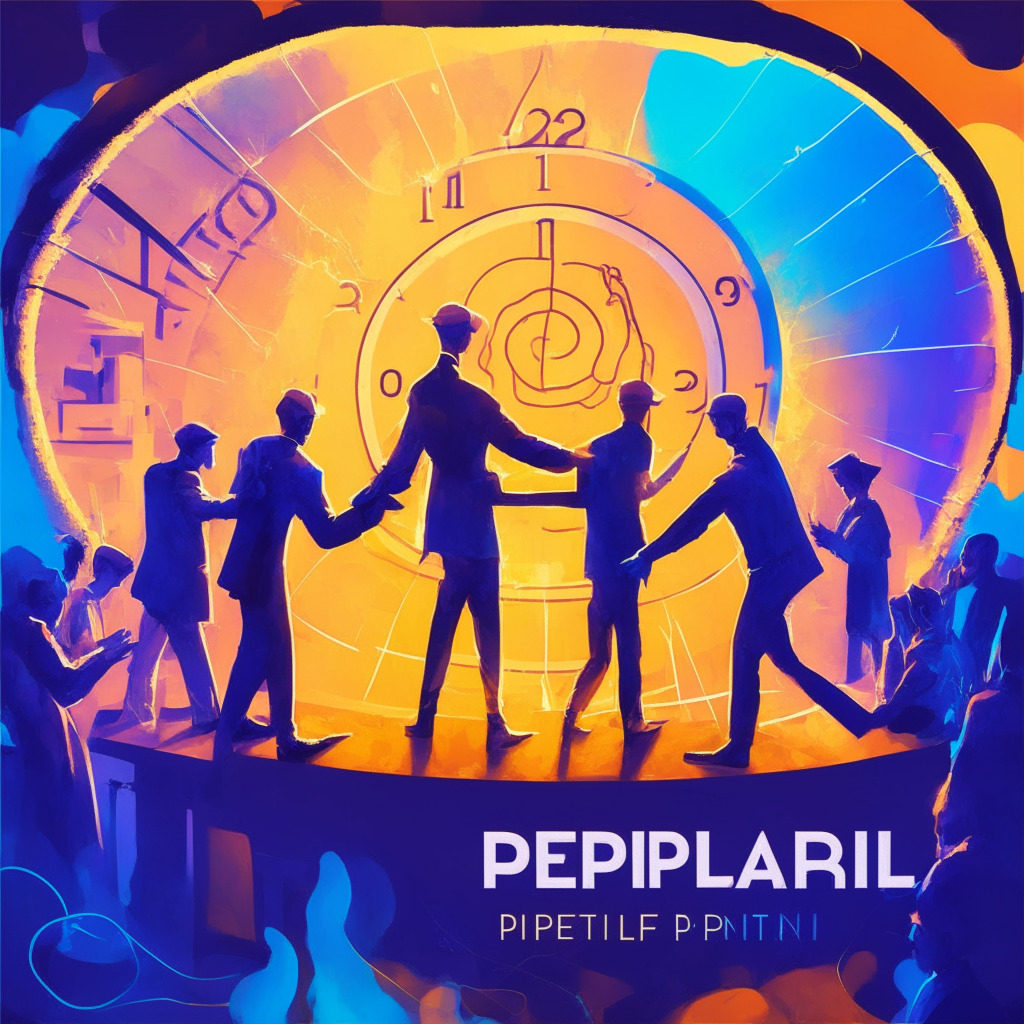Hector Network’s future is uncertain as it hosts a vote on Hector Improvement Proposal 40 (HIP 40), which could dilute token holders’ rights. The proposal aims to clear legal uncertainties for the decentralized autonomous organization (DAO) but grants significant governance power to Hector Network employees, receiving backlash for potentially undermining its community-run status.
Search Results for: Oracle
EigenLayer: The Future of Blockchain Security or Overhyped Ethereum Competitor?
EigenLayer protocol aims to provide blockchain security-as-a-service, enabling secure crypto project launches without extensive funds, hardware, or validators. By “rehypothecating” staked ETH, it increases yield for stakers and incentivizes participation, while attracting praise and financial support from prominent investors. The project’s success, however, remains to be seen.
Lido V2 Upgrade: Anticipating Benefits, Risks, and Impact on Ethereum Staking Demand
The upcoming Lido V2 upgrade, contingent upon an on-chain vote, will introduce benefits such as withdrawals for ETH and a staking router simplifying the crypto on-ramp for users. Offering streamlined validator exits and withdrawal requests fulfillment, the upgrade seeks to enhance users’ staking experience while addressing issues related to security and efficiency.
FedNow and Metal Blockchain Integration: Stablecoins, Privacy, and Financial Future Debated
The Federal Reserve’s upcoming integration with Metal Blockchain has sparked debates on stablecoins, privacy, and financial system plans. Metal Blockchain’s collaboration with instant payment service FedNow aims to enable rapid stablecoin conversions and potentially create interconnected “bank chains” for a secure, oracle-independent blockchain ecosystem.
Injective Integrates Pyth for Real-World Asset Data in dApps: A DeFi Game Changer or Overhyped?
Injective, a layer-1 blockchain, has integrated Pyth onto its mainnet, enabling decentralized applications (dApps) to access on-chain data for hundreds of markets, such as equities, commodities, and cryptocurrencies. Injective’s Pyth integration highlights the growing synergy between traditional finance and decentralized markets, possibly fostering a new era of cross-chain data composability and impacting the DeFi space.
Sotheby’s NFT Marketplace and Meta’s Struggles: Blockchain Evolution or Growing Pains?
Sotheby’s auction house launched an on-chain NFT marketplace featuring unique artists, while marketplace Blur introduced Blend, a perpetual NFT lending protocol. Neobank Cogni introduced soulbound NFTs for wallet holders’ KYC information, showing rapid progress and adoption of NFTs in various sectors despite challenges like market imbalances and high-stake project losses.
Revolutionizing DeFi Portfolio Management: Symmetry Launches on Solana Blockchain
Symmetry, a decentralized finance (DeFi) platform on the Solana blockchain, has launched its User Interface, offering an all-in-one solution for creating, managing, buying, and selling crypto indices and actively managed funds. Built on Solana, Symmetry covers on-chain funds, indices, multi-token liquidity pools, and more. The platform envisions a future where users can easily create and manage portfolios while navigating the evolving crypto landscape.
Flare’s API Portal on Google Cloud: Pros, Cons, and the Debate Around Decentralization
Flare’s integration of its API portal on Google Cloud Marketplace promises to bring a wealth of blockchain APIs to developers and users, fostering easier experimentation and wider adoption of blockchain technology. Despite concerns about centralization, this move aims to boost Web3 participation and facilitate cross-chain applications.
Revolutionizing DeFi with Symmetry’s UI Launch on Solana: New Opportunities & Challenges
Symmetry unveils its User Interface on the Solana blockchain, offering a comprehensive solution for creating, managing, buying, and selling crypto portfolios via indices and actively managed funds. This innovative platform presents opportunities for fund managers and users, providing liquidity provisions for indices and actively managed funds, enabling cost-free rebalancing and generating fees.
Perpetual Lending Protocols & NFTs: Revolutionizing Finance or Risky Business?
Perpetual lending protocols and non-fungible tokens (NFTs) have recently gained significant attention in the world […]
NFT Marketplace Blur Introduces Blend: A Risky Game of Perpetual Loans or Liquidity Boost for Token Owners?
Blur, the influential NFT Marketplace for pro traders, has unveiled Blend, an innovative peer-to-peer perpetual […]
Halt the Polygon Party: 0VIX Exploit Exposes Struggles in POS and zkEVM Territory
Polygon lending protocol 0VIX has announced a temporary halt to its POS and zkEVM operations […]











